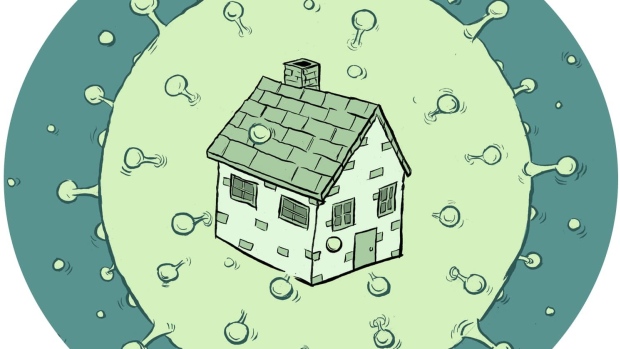May 27, 2020
MoneyTalk: What if I can’t pay my mortgage?
Presented by:


If COVID-19 has you worried about how you will pay your mortgage, there are some options available. Here’s what you should know.
These are unprecedented times. Hard-working, conscientious people could find themselves sick, temporarily unemployed or just unable to work. And if that happens, many Canadian homeowners may wonder just how they’re going to pay the bills, the biggest of which for some may be their mortgage payments. Canada’s banks, the federal government and the Canada Mortgage and Housing Corporation are stepping in with relief in the form of a six-month mortgage deferral program.
Here are the details: The program is being administered on a case-by-case basis to individuals whose mortgages are in good standing, and will be available until at least June 30, 2020. The relief offer is a pause on the payments themselves, not a forgiveness of the overall mortgage obligation, which means that interest will continue to accumulate and be added to your debt. In some cases the interest will be compounded. There may also be options available to pause your mortgage credit protection insurance premiums. You should reach out to your financial provider for details, though TD clients can find information about applying for this and other relief offers online here.
Individuals considering this option should give it careful thought: think about how it will impact their own situation and recall that the program is designed to alleviate temporary hardship due to the impact of COVID-19. Depending on the current position of your finances, it may be better to continue with your mortgage payments. If you think your unemployment or debt situation could be longer term, you might wish to discuss other options that may be available.

COVID-19 Financial Relief
Where to find help
In order to determine whether the deferral program is for you, calculate whether you could continue to make payments. Consider your current spending and make a sharp distinction between what is discretionary and what isn’t, what you have to pay for and what you can get by without. Look at all your debts from your mortgage to your credit card bills and make sure you are prioritizing your debt properly. Cash saved by not paying a mortgage could, for instance, go towards paying down credit cards, even just the minimum.
Check your cash flow and see what you are expecting to receive in the near future. Also, look at what other bills are being deferred during this period, such as property taxes. You may also be eligible for other COVID-19 government relief programs.
If you really are in a predicament because of the COVID-19 crisis where the disruption of cash flow is preventing you from making a mortgage payment, a deferral might be your best route.
When things do get “back to normal,” remember that the amount owing on your mortgage will be higher, due to the interest that has accrued. In that case, you might wonder how you will “catch up.” In the case of TD, your payments will be adjusted automatically at the start of your next term, to ensure your mortgage is paid off at the end of your original amortization period. You can speak with your financial provider to see what other options may be available, including the potential for a lump sum payment or increasing your payments to help you get back on track sooner.
To sum up, getting relief during this period of uncertainty is welcome but juggling finances can be tricky even at the best of times. If you think a deferral of payments may be right for you, you can find out more about TD’s relief offers here, or reach out to your mortgage provider to discuss the options available.








